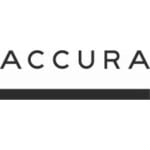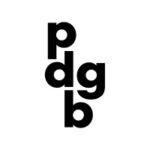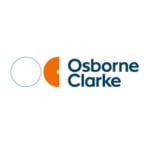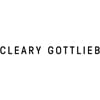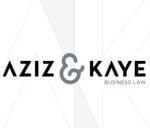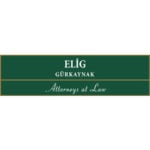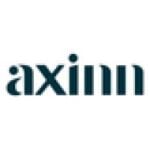-
What is the relevant legislative framework?
In Belgium, cartels fall under Article IV.1, §1 of the Code of Economic Law (CEL), as well as Article 101 of the Treaty on the Functioning of the European Union (TFEU), which has a direct effect in Belgian law, if the cartel is also likely to affect trade between member states.
Similarly to Article 101(1) TFEU, Article IV.1 §1 prohibits and declares automatically void agreements between undertakings, decisions by associations of undertakings and concerted practices which have as their object or effect to appreciably prevent, restrict or distort competition in the Belgian market. It applies to both vertical and horizontal agreements, and the European Commission’s (the Commission) guidelines on horizontal and vertical cooperation agreements with regard to Article 101(1) TFEU are applied by the Belgian Competition Authority (BCA) by analogy.
In contrast to Article 101(1), Article IV.1 has a fourth paragraph which explicitly prohibits natural persons to, in the context of the activities of un undertaking or association of undertakings, negotiate, agree, conclude or coordinate with competitors to fix prices, limit production or sales, allocate markets. Such infringement can, however, only be established if there is also a finding of infringement of Article IV.1 §1 in the same case.
Consistent with Article 101(3), Article IV.1 §3 provides for an exemption where the efficiencies of an agreement and a fair share of the resulting benefits for consumers outweigh the anticompetitive effects of object. In addition, Article IV.1 §3 provides for an exception for cooperations between small to medium-sized enterprises (SMEs) if the agreement does not significantly affect competition on the market and the agreement serves to improve the competitiveness of these SMEs.
The VBER is directly applicable as well, but Article IV.5 CEL provides for the possibility to adopt exemptions to categories of agreements, decisions or associations or undertakings and concerted practices which fall within the scope of a royal decree adopted in implementation of this article as well. However, no use has been made of this possibility to date.
-
To establish an infringement, does there need to have been an effect on the market?
This depends on whether the agreement is considered to have as its object or effect the restriction of competition on the Belgian market. A cartel agreement is normally considered to restrict competition by object, which means that there will be no need to examine its actual effects on the Belgian market and the agreement will automatically be considered anti-competitive as it reveals a sufficient degree of harm to competition.
-
Does the law apply to conduct that occurs outside the jurisdiction?
Article IV.1 only applies to conduct occurring in Belgium. However, it applies to undertakings located outside of Belgium if the infringement has occurred in Belgium, or has an impact on the relevant Belgian market or a substantial part of it.
-
Which authorities can investigate cartels?
The BCA is responsible for enforcing the cartel rules in Belgium including investigating, prosecuting and decision-making in relation to anticompetitive practices. The BCA is structured as follows: an investigative service (the Investigation and Prosecution Service) and a decision-making body (the Competition College). The decision-making body is the Competition College for all infringement cases that are not settled or closed by the Investigation and Prosecution Service.
The Competition Prosecutor General leads the Investigation and Prosecution Service, while the BCA President presides over the Competition College. Per case the Competition College reviews, it consists of two assessors and the President. For the purpose of identifying potential investigation cases, the Investigation and Prosecution Service’s personnel members are authorized to perform, when requested by the Competition Prosecutor General, information research work and analyses of informal complaints.
The Minister of Economy and Labour and Minister of Small Businesses is granted a limited role in competition law enforcement in the form of a positive injunction right, i.e., it can order the Competition Prosecutor General to investigate a certain case. The Investigation and Prosecution Service or (if the case proceeds) the Competition College remain nonetheless at liberty of dismissing the case. Furthermore, the Minister of SMEs, an appropriate public institution or other public body responsible for the supervision or control of an economic sector can request the Competition Prosecutor General to open an investigation.
Competition law may also be privately enforced through national courts (see question 7 infra) in the context of damages claims by victims of competition law infringements. There is a separate section within the Brussels Court of Appeal, the Market Court, which is the only Court competent to hear an appeal against a decision by the Competition College.
-
How do authorities typically learn of the existence of a potential cartel and to what extent do they have discretion over the cases that they open?
The BCA can initiate an investigation into competition restrictive practices either at the request of complainants or on its own initiative (ex officio) based on information gathered from various sources such as media reports, anonymous tips, or data uncovered in related competition cases. The BCA may carry out general or sectoral investigations if there are indications of market failure, as it has recently done so in the context of sectoral price revision and indexation mechanisms.
In cartel matters, investigations are frequently triggered by leniency applications submitted by participants in illegal activity (see section on leniency programme).
Additionally, the BCA has a whistleblower tool to enable to report anti-competitive conduct anonymously more easily since October 2022. Since January 2023, the BCA was designated the competent authority mandated to receive reports of violations of national and European competition rules in cooperation with the federal Ombudsman. The anonymous tool also protects employees, who may fear retaliation, thereby expanding the pool of potential informants beyond competing companies. This added layer of protection increases internal pressure on companies, as they now know that insiders can come forward.
The BCA as Belgium’s national competition authority (NCA) forms part of the European Competition Network (ECN). Within this network, authorities share best practices and detection tools, fostering a more unified and effective enforcement approach.
-
What are the key steps in a cartel investigation?
Investigative procedures and inspections
The Competition Prosecutor General initiates investigations taking into account the BCA’s priorities, and after having consulted the Chief Economist. A team of Investigation and Prosecution Service personnel members is allocated to each opened investigation file and are in charge of carrying out the investigation, under the direction of a competition prosecutor (the Investigation and Prosecution Service comprises the Competition Prosecutor General, two competition prosecutors), who looks after the day-to-day management of the investigation.
The investigation team has the power to conduct inspections (dawn raids) following the prior authorisation of an examining magistrate at the Dutch or French-speaking section of the Brussels First Instance Court. During these operations, they may access business premises, transport means, and other locations in which they have a reason to believe relevant information may be found, including private residences of company executives. Employees of the company under investigation may be questioned during this phase of the investigation regarding facts or documents related to the purpose of the investigation.
Commitments
At any stage of the investigation, parties may propose commitments to address competition concerns under Article IV.44 et seq. CEL. If accepted by the Competition College, these commitments become legally binding, eliminating the need for further BCA intervention. Importantly, such agreements do not constitute an admission of wrongdoing, and the Competition College refrains from ruling on the existence of an infringement.
Settlement framework
Prior to the filing of a draft decision and during the course of the investigation, the Competition Prosecutor General may invite parties to engage in settlement discussions. In which case, the Competition Prosecutor General opens a settlement procedure, identifies the grievances and allows the parties to access the material evidence of the file. The parties will also be informed about the maximum and minimum fines the Competition College plans to propose in exchange for acknowledgement of participation in the infringement, admission of responsibility and acceptance of the indicated penalty. The Investigation and Prosecution Service can then reduce the fine by 10%. Such agreement qualifies as a decision of the Competition College under Article IV.59 CEL.
In case no agreement is reached, the normal procedure continues. See question 4 infra.
Decision-making process
Following the conclusion of the investigation, whereby commitments are possibly offered, a draft decision is submitted by the Competition Prosecutor General to the Competition College and all parties to the investigation. Once access has been granted to file, the parties have one month (plus possible extensions) to submit their observations.
The Competition College President then schedules a hearing within two months of closing the written procedure. During the hearing, the Competition College hears the Competition Prosecutor General, and also the parties to the investigation, the complainant, and other interested third parties if they wish to be heard. Upon their request, the Competition College also hears the Minister of Economy, the Chief Economist and the General Counsel.
Outcome determinations
The Competition College may:
- conclude that, based on information and evidence available to it, there are no further grounds for intervention; or
- conclude the existence of competition restrictive practices and order for these practices to end, which may include fines and/or periodic penalties.
- accept the parties’ commitments as binding, thereby terminating proceedings based on the conclusion that there no longer are grounds for intervention. In such case, the Competition College does not rule on the existence of an infringement and the commitments do not result in any negative acknowledgments on the part of the undertaking concerned.
- establish non-compliance with a decision of the Competition Prosecutor General or of the Competition College, order compliance going-forward and impose a fine.
The undertakings concerned, the complainant and the Minister of Economy as well as any third party that can justify an interest (and that asked the Competition College to be heard) can lodge an appeal against a decision by the Competition College with the Market Court within 30 days of the decision being notified. Given their nature, settlement decisions are, however, not subject to any possibility of appeal. In principle, an appeal does not suspend the decision, except in certain circumstances where the Market Court may suspend all or part of the Competition College’s decision.
-
What are the key investigative powers that are available to the relevant authorities?
For purposes of gathering the necessary information and evidence to properly investigate potentially restrictive practices, the BCA has several tools at its disposal in terms of investigative powers:
Inspections
Article IV.41 CEL and the BCA’s Guidelines of 17 December 2013 on the Procedure for Inspections empower the BCA to conduct inspections in the context of an investigation of anti-competitive practices. These inspections, often referred to as “dawn raids” are a key investigative tool used in enforcing Belgian competition law and cartel rules. Undertakings are legally obliged to comply with inspections carried out by authorised officials of the BCA, subject to prior authorisation by a judge.
While the party under investigation has the right to consult legal counsel during inspections, the absence or delay in obtaining legal advice does not prevent the inspectors from starting the inspection immediately upon notification of the mission order and the judicial authorization.
During a dawn raid, inspectors are empowered to access business premises, transport means, and other relevant locations where evidence may be found, examine and copy documents, seal records or offices, and request on-the-spot explanations from staff. Inspectors are entitled to access not only company premises and company devices and servers, but also private residences of key personnel and private devices used for professional purposes if they are found on-site. Locations other than company premises that are sealed and materials that are collected there, can only be done so for the duration of the mission, and for a maximum of 72 hours.
The use of forensic IT tools enables the BCA to select relevant documents and create authentic copies of electronic data for further examination, either on the company’s premises or, where necessary, at the BCA’s offices in Brussels. Three copies of selected data are created: two are sealed for the BCA, and one is provided to the company. Data are categorised as either within the scope of the investigation, potentially protected by legal professional privilege (LPP), or outside the scope of the search warrant. Only documents confirmed as within scope are accessible to investigators, while contested documents are sealed for later review by an independent prosecutor.
Similar procedures apply to paper documents. Companies are given at least 10 working days to justify claims that certain documents are privileged or outside the scope of the investigation. The BCA, and where necessary, external experts, review these claims, and documents deemed privileged are excluded from the investigation and deleted from records.
At the conclusion of an inspection, undertakings receive copies of all seized materials and a detailed inventory. All data remaining on temporary storage devices are permanently deleted on-site. Throughout the process, confidentiality is strictly maintained, and at a later stage, companies are given the opportunity to comment on the confidentiality of each document included in the case file. The minimum period of 10 working days, adjusted according to the volume and size of the documents, applies to allow the company to substantiate claims that contested copies of documents fall outside the investigation’s scope or are protected by LPP.
Requests for information (RFIs)
According to Article IV.40 et seq. CEL, the prosecutors are responsible for gathering all necessary information and make all necessary observations within the context of their investigation. The RFI specifies the required information and fixes the time limit within which the information must be provided, subject to fines.
Power to take statements (interview)
According to Article IV.40/1 CEL and the BCA’s Guidelines of 17 December 2013 on the Procedure for Inspections, the BCA has the authority to interview individuals or legal entities who may hold relevant information about suspected cartel infringements.
-
On what grounds can legal privilege be invoked to withhold the production of certain documents in the context of a request by the relevant authorities?
LPP is recognised under Belgian law (professional ethics) and protects correspondence between independent qualified lawyers and their clients within the context of the representation. In contrast to the principle of LPP at European level, the Belgian LPP also extends to in-house counsel affiliated with the Belgian Institute of in-house counsel (the “Institut des juristes d’entreprise” or the “Instituut voor Bedrijsjuristen”). This has been recognised in case law e.g., by the Brussels Court of Appeal in 2013 (confirmed by the Court of Cassation in 2015) in the context of inspections carried out by the BCA at the premises of Belgian telecommunications company Belgacom in 2010 whereby, the BCA seized documents including advice from in-house counsel and considered that these were not protected by LPP. Belgacom appealed the inspection decision with the Brussels Court of Appeal, which agreed with its argumentation that those documents were also protected by LPP.
-
What are the conditions for a granting of full immunity? What evidence does the applicant need to provide? Is a formal admission required?
The BCA’s leniency programme, established under Article IV.54 et seq. CEL and the BCA’s Leniency Guidelines of 6 May 2020, encourages companies to report cartels to the BCA in return for total or partial exemption from fines. Given the fact that cartels are usually secret and evidence is hard to find, leniency enables the BCA to learn about the existence of cartels and obtain the necessary evidence.
Full immunity from fines under Belgian competition law, referred to as “Type 1” immunity, may be granted to undertakings, associations of undertakings, and individuals involved in cartels, provided that certain conditions are met. For undertakings and associations of undertakings, immunity is only available to an applicant that has not played a coercive role in encouraging others to join or remain in the cartel. The undertaking is also expected to provide all evidence in its possession, stop its involvement in the infringement (subject to any necessary measures to safeguard the BCA’s inspection process) and commit to full, genuine, and ongoing cooperation throughout the proceedings.
The BCA differentiates two forms of full immunity: Type 1A and Type 1B. Type 1A immunity requires that the leniency applicant be the first to submit information and evidence enabling the BCA to conduct targeted inspections, when the BCA is not in possession of sufficient information to justify a dawn raid. Type 1B immunity applies where the leniency applicant is the first to provide evidence that allows the BCA to establish an infringement, provided that the BCA lacks the necessary evidence to do so on its own and no other party has secured full immunity in relation to the same conduct yet.
Although a formal admission of liability is not explicitly required, applicants must not contest the facts or the existence of the practices described in their leniency application. This implies that a clear and cooperative stance is mandatory, which may often include an implicit or explicit acknowledgment of involvement.
Based on Article IV.54/4 CEL, individuals may also be granted full immunity from fines if they contribute to the establishment of the infringement and the identification of participants by offering previously unavailable information or evidence of a yet unproven cartel or by acknowledging their participation in the infringement. Notably, for individuals, being the first to come forward is not a condition for obtaining full immunity.
-
What level of leniency, if any, is available to subsequent applicants and what are the eligibility conditions?
Undertakings that do not qualify for full immunity may still benefit from partial leniency under the Leniency Guidelines if they provide evidence with significant added value compared to what the BCA already possesses, i.e. “Type 2” immunity. The concept of “significant added value” refers to the extent to which the evidence provided, given its nature and/or accuracy, strengthens the BCA’s ability to substantiate the existence of an alleged cartel. The BCA decides on the appropriate level of fine reductions for leniency applicants, based on the time of submission of the evidence and the extent to which it represents added value. The first applicant for a reduction of the fine is granted a reduction between 30% and 50% of the fine which would have otherwise been imposed, the second applicant receives a reduction between 20% to 40%, and all subsequent applicants receive reductions between 10% and 30%.
Eligibility for such leniency is also contingent upon meeting several procedural conditions. These include full, genuine, continuous, and timely cooperation throughout the process; refraining from disclosing the content of the application or the facts submitted; and terminating involvement in the cartel (unless the BCA explicitly requires otherwise).
-
Are markers available and, if so, in what circumstances?
Yes, the BCA offers a marker system for leniency applicants under Article 54/1 CEL and its Leniency Guidelines. A marker effectively reserves a leniency applicant’s position in the leniency queue while giving it a limited time period to gather and submit the evidence necessary to satisfy the immunity criteria. A marker is requested via email or telephonically vis-à-vis the Competition Prosecutor General and is typically used when the applicant is not yet in a position to submit a full immunity or leniency application.
To obtain a marker, the applicant must provide a minimum amount of information, such as the nature and duration of the cartel, the products and territories affected, the other participants etc. If the application is perfected within the granted period, the applicant retains its original place in the queue, based on the date the marker was first issued. Failure to meet the deadline results in the loss of the applicant’s priority status.
-
What is required of immunity/leniency applicants in terms of ongoing cooperation with the relevant authorities?
Continuous cooperation is a fundamental obligation for both leniency and immunity applicants under the BCA’s Leniency Guidelines. This duty encompasses timely provision of all relevant evidence, responding swiftly to any RFIs from the BCA, and making current or former staff – particularly directors and employees – available for interviews where necessary. The cooperation must be sincere, complete, and continuous, extending until the end of the BCA’s investigation, until the conclusion of the procedure (including the final decision by the Competition College). In addition, applicants must refrain from actions that could undermine the investigation, such as destroying, tampering with, or concealing evidence, and must ensure confidentiality up to the submission of the draft decision by the Competition College.
-
Does the grant of immunity/leniency extend to immunity from criminal prosecution (if any) for current/former employees and directors?
Within the Belgian legal framework, the BCA does not have the authority to impose criminal sanctions on individuals, nor can it grant immunity from such penalties under national law. However, individuals can be subject to administrative fines of EUR 100 to EUR 10,000 (non-tax deductible) in the context of cartels, for negotiating, agreeing, concluding or coordinating, on behalf of an undertaking with one or more of its competitors, to fix prices, limit production or sales, or allocate markets. Immunity from administrative prosecution can be granted to individuals who cooperate sufficiently regarding the leniency application with the BCA.
Immunity can also be granted regarding the criminal penalties for bid-rigging (see question 6.1 infra), when the infringer has submitted a leniency application with the BCA regarding the same facts and has provided all relevant information in relation to the circumstances of the bid-rigging infringement and the parties involved to the public prosecutor.
-
Is there an ‘amnesty plus’ programme available in respect of evidence provided to prove additional infringements?
The Belgian leniency programme does not provide for an “amnesty plus” or “immunity plus” mechanism. This means that a company cooperating in one cartel investigation does not receive additional benefits merely for disclosing the existence of another, unrelated cartel. That said, an undertaking may still choose to submit a leniency application for the second cartel. In doing so, it must meet the usual eligibility criteria for full or partial leniency, as assessed independently in the context of the newly revealed infringement.
-
Does the investigating authority have the ability to enter into a settlement agreement or plea bargain and, if so, what is the process for doing so?
Yes, the BCA operates the possibility of a settlement procedure in cartel cases under Article IV.55 et seq. CEL. This process is designed to simplify enforcement where the parties and the BCA can reach a shared understanding on the infringement’s scope, factual background, and suitable penalty. Undertakings opting to settle must formally accept their role in the cartel and acknowledge liability, along with the BCA’s legal characterisation of the conduct.
Prior to the filing of a draft decision on the merits by the Competition College and during the course of the investigation, the Competition Prosecutor General may invite parties to engage in settlement discussions. In which case, the Competition Prosecutor General opens a settlement procedure, identifies the grievances and allows the parties to access the material evidence of the file, with a view of reaching a settlement agreement.
The parties will also be informed about the maximum and minimum fines the Competition College plans to propose in exchange for acknowledgement of participation in the infringement, admission of responsibility and acceptance of the indicated penalty. The Investigation and Prosecution Service can then reduce the fine by 10%. Such agreement qualifies as a decision of the Competition College under Article IV.59 CEL. The settlement procedure is concluded by the Investigation and Prosecution Service’s decision, whereby no court or judicial approval is involved. A settlement decision by the Investigation and Prosecution Service is legally equivalent to a decision by the Competition College. In case no agreement is reached, the normal procedure continues.
While the BCA prefers to settle with all cartel participants to maximise procedural efficiency – a so-called “total settlement” – hybrid cases also do arise, i.e. when some companies settle and others do not. A hybrid settlement was for example concluded in 2022 with two pharmaceutical wholesalers – Pharma Belgium-Belmedis and Febelco – while a third party, CERP SA, chose not to settle. Febelco received full immunity as it disclosed the existence of the cartel. Belmedis received a reduced fine after having received a 40% reduction for adducing evidence with significant added value and a 10% settlement reduction. The BCA subsequently issued a separate infringement decision against CERP in October 2023, marking the authority’s first hybrid cartel case.
-
What are the key pros and cons for a party that is considering entering into settlement?
On the one hand, opting to settle with the BCA in cartel cases offers several practical and financial benefits. The main advantage lies in the guaranteed 10% reduction of the fine imposed (which is in addition to any discount they may qualify for under the leniency programme). It also provides for the opportunity to discuss the nature and characterisation of the infringement with the BCA, potentially narrowing the scope of objections raised. In addition, a long and formalistic procedure is avoided as well as potential further litigation, offering an expedited resolution with more predictability and control over the outcome, including greater certainty regarding the amount of the fine. In practice, undertakings may also factor in reputational benefits associated with cooperation and swift resolution, as well as the possibility to demonstrate a willingness to remedy harm by agreeing to private damage claims.
On the other hand, however, settlement requires a formal admission of participation in the cartel and acceptance of liability, which may carry significant legal consequences. This admission can serve as a strengthening factor as regards the position of claimants in follow-on private damage claims, even though the settlement materials themselves remain confidential and inaccessible for them. Furthermore, settling parties waive their right to appeal the settlement decision, thereby forfeiting any opportunity to challenge the findings or the amount of the fine following the BCA procedure. Lastly, a settlement in one country does not exclude potential parallel investigations in other jurisdictions, particularly if the infringement has cross-border dimensions. While the BCA may take foreign penalties into account, such coordination is not guaranteed to shield the party from all international consequences.
-
What is the nature and extent of any cooperation with other investigating authorities, including from other jurisdictions?
The BCA actively engages in inter-agency cooperation, both within the EU and internationally. It is a member of the ECN, the European Competition Authorities (ECA), the International Competition Network (ICN), and the OECD Competition Committee. All of these organisations ensure that structured collaboration takes place between the Commission and various NCAs. In practice, the BCA has participated in joint inspections with other NCAs and with the Commission, responded to queries from foreign authorities, and carried out investigations on behalf of other NCAs or of the Commission upon their request. For example, in the Caudalie case in 2018, the BCA requested the French Competition Authority to conduct inspections in France on its behalf.
Cross-border cooperation is especially strong as regards the NCAs of Belgium’s neighbouring countries Germany, Luxembourg, and the Netherlands. Given the geographical proximity and the close cooperation of the four authorities, simultaneous dawn raids are possible as well as a coordinated collection of evidence located in the various countries.
In accordance with the ne bis in idem-principle, the BCA may (but is not obliged to) factor the fact that an undertaking has already been sanctioned for the same cartel by another NCA in another jurisdiction into its fine calculation for cross-border cartel cases. The BCA’s Guidelines on the Calculation of Fines of 3 September 2020 further allow for upward or downward adjustments in the event of prior prosecution for similar infringements for the same facts by the Commission or a neighbouring NCA.
Through established cooperation mechanisms with the Commission and NCAs, the BCA may also share leniency applications with those authorities subject to certain conditions under Article IV.78 CEL: with the express consent of the leniency applicant, or if the receiving authority has received a parallel leniency application from the same applicant concerning the same infringement and the applicant can no longer withdraw that application at the time of submission.
-
What are the potential civil and criminal sanctions if cartel activity is established? How often are civil sanctions and/ or criminal penalties imposed in practice following a finding of an infringement?
Cartel infringements under Belgian competition law are penalised through administrative fines imposed by the BCA, which have a punitive and deterrent function. In accordance with Article IV.79 et seq. CEL and the BCA’s Guidelines on the Calculation of Fines, these fines can amount to up to 10% of the total global turnover of the infringing undertaking or association of undertakings. Individuals, i.e. natural persons, who participate in cartel conduct may also face administrative fines ranging between EUR 100 and EUR 10,000.
The BCA also has the authority to adopt interim measures under Article IV.71 et seq. CEL, as well as impose structural or behavioural remedies and periodic penalty payments of up to 5% of the average daily turnover (under Article IV.79 et seq. CEL) to enforce compliance with its decisions.
As mentioned under question 3.5, criminal sanctions are not available in Belgium for competition law infringements, except in the specific context of bid rigging in public procurement procedures. In such cases, criminal courts may impose custodial sentences of 15 days to six months and fines between EUR 100 and EUR 3,000 in accordance with Article 314 of the Criminal Code. Immunity from criminal prosecution is now possible following a Law of 28 February 2022 for individuals who submit an immunity application to the BCA and provide all relevant information to the public prosecutor.
Civil courts in Belgium cannot themselves impose fines for anticompetitive conduct, but they may award damages to victims through private enforcement in (follow-on) damages procedures.
-
What factors are taken into account when the fine is set? Does the existence of an effective corporate compliance strategy impact the determination of the fine? In practice, what is the maximum level of fines that has been imposed in the case of recent domestic and international cartels?
Fines imposed by the BCA are calculated based its Guidelines on the Calculation of Fines adopted on 3 September 2020, which are tailored to Belgian legal and economic specifics. The basic amount of the fine is determined as a percentage (typically between 15% and 25%) of the value of sales linked to the infringement in Belgium, multiplied by the duration of the infringement in years. This amount can then be adjusted based on aggravating or mitigating circumstances.
Aggravating circumstances include refusal to cooperate with the BCA and assuming a leadership role in the cartel. Mitigating factors may include situations where the conduct was authorised or encouraged by public authorities or legislation. Notably, the existence of a corporate compliance programme is not treated as a mitigating circumstance and therefore has no effect on the fine level.
A recent example of a substantial fine imposed by the BCA involved a cartel between three major private security firms, i.e. G4S, Seris, and Securitas. The infringement lasted from 2008 to 2020 for which fines exceeding EUR 47 million were imposed (EUR 35.9 million for G4S and EUR 11.2 million for Series). Securitas received full immunity under the leniency programme.
-
Are parent companies presumed to be jointly and severally liable with an infringing subsidiary?
In line with established EU case law (Case 97/08 Akzo Nobel v Commission, EU:C:2009:536), parent companies are presumed to be jointly and severally liable for antitrust infringements committed by their wholly or nearly wholly owned subsidiaries also under Belgian law (under Article XVII.86 et seq. CEL). This presumption rests on the notion that a parent company exercises decisive influence over its subsidiary’s commercial conduct when it holds all or nearly all of its share capital. While this is a rebuttable presumption, it is rarely overturned in practice. The BCA applies this principle in its enforcement actions, as illustrated in the 2017 decision where it imposed a fine not only on Algist Bruggeman NV but also on its parent companies, confirming that parental liability is firmly recognised under Belgian competition law when the economic unit threshold is met.
-
Are private actions and/or class actions available for infringement of the cartel rules?
In Belgium, individuals or entities harmed by breaches of competition law, including cartel infringements, can pursue compensation through private legal proceedings before the national courts. Such claims can be brought under general civil law provisions relating to contractual and tort liability. However, with the adoption of the Law of 6 June 2017, which transposed the EU Damages Directive (Directive 2014/104/EU of the European Parliament and of the Council of 26 November 2014 on certain rules governing actions for damages under national law for infringements of the competition law provisions of the Member States and of the European Union) and inserts the action for damages for infringements of competition law in the CEL, the legal framework for private enforcement was significantly strengthened. This legislation introduced specific rules to facilitate claims for damages resulting from competition law violations, making private enforcement more accessible and effective.
Both direct and indirect victims of competition infringement are entitled to bring these actions under Article XVII.71 et seq. CEL. Importantly, claimants do not need a prior finding of infringement by the BCA or the Commission for their claim to be admissible, although a final decision by these authorities constitutes irrefutable evidence of fault.
Although class actions are generally not permitted in Belgium, there is a possibility for collective redress action as regards follow-on damages under competition law in Article XVII.35 et seq. CEL. Such actions are limited to follow-on claims following a final infringement decision by the BCA, and fall under the exclusive jurisdiction of the Brussels courts.
-
What type of damages can be recovered by claimants and how are they quantified?
In Belgium, claimants are entitled to full compensation for damages caused by the infringement, including compensation for actual loss, loss of profits and payment of interests from the date the harm was incurred until full payment is made. The aim of which is to restore the victim of a cartel to the position they would have occupied had the infringement not occurred. Belgian law does not allow for punitive or exemplary damages; only actual losses are recoverable for competition law damages (under Article XVII.72 CEL) in line with general law.
The quantification of damages generally requires claimants to demonstrate the extent of their loss, often involving complex economic analysis and the use of expert reports. Courts may appoint experts, or parties may submit their own expert evidence. In cartel cases, there is a rebuttable presumption that harm has occurred, which alleviates the burden of proof on claimants. Furthermore, Article XVII.83 et seq. CEL allows for the passing-on of any overcharge that was transferred down the supply chain, thus reducing the claimant’s loss. Conversely, indirect purchasers can benefit from a presumption that overcharges were at least partially passed on to them, provided certain conditions are met.
The Trucks cartel is a great example of private enforcement in a cartel case, whereby the Commercial Court of Ghent awarded damages amounting to EUR 307K to a transport company that had been purchasing and leasing trucks from a trucks manufacturer which participated in the truck cartel following the Commission’s prohibition decision (Case AT.39824 of 19 July 2017).
-
On what grounds can a decision of the relevant authority be appealed?
Based on Article IV.90 CEL, decisions of the BCA’s Competition College or the Competition Prosecutor General may be appealed before the Market Court, which is a division of the Brussels Court of Appeal, on both factual and legal grounds. This includes challenges to the merits of an infringement decision, e.g., disputes regarding the existence of the anti-competitive practice as such, or procedural irregularities during the investigations, and objections to the quantum of imposed fines. The Market Court may substitute the cartel decision of the Competition College with its own decision, including a negative statement that no infringement is present. However, when the Market Court concludes that a cartel infringement is present in contrast to the BCA decision, it can only annul the relevant decision without rendering a substitute decision. In relation to an appeal against the fines imposed, the Market Court can decrease the fine based on reasons of expediency, proportionality or legitimacy, but if it considers the fine too low, its only option is to annul the decision of the Competition College and send it back. As mentioned under question 4, final settlement decisions cannot be appealed as the parties waive their right to appeal when settling with the BCA.
-
What is the process for filing an appeal?
The participants directly involved in the cartel, the complainants, the Minister of Economy, and third parties demonstrating a legitimate interest through prior participation in proceedings can file an appeal before the Brussels Market Court within 30 days of the notification of the contested BCA decision (Article IV.90 §5 CEL).
As is the case under general Belgian procedural law, the filing of an appeal has no suspensory effect of the contested decision, which means that the contested decision is immediately enforceable upon its issuance. However, based on Article IV.90 §3 CEL, the Market Court can under certain conditions decide to suspend all, or part of a decision issued by the Competition College. This will be the case when the party can invoke serious means that may justify the annulment of the contested decision and provided that the immediate enforcement of that decision may have serious consequences for the party concerned. The Market Court may, where appropriate, order that the amount of the fines paid be refunded to the party concerned.
A decision of the Market Court can be further appealed with the Court of Cassation on legal grounds only.
-
What are some recent notable cartel cases (limited to one or two key examples, with a very short summary of the facts, decision and sanctions/level of fine)?
The BCA is clearly active in the area of cartel enforcement, with already a commitment decision having been issued on 24 March 2025 in relation to an alleged cartel between Belgium’s four largest banks (Case CONC-RPR-22/0001, Batopin). Last summer, the BCA entered into a settlement with certain companies active in the fire protection sector for bid rigging over a period of 7 years, following a leniency application of one of the participants (Case 24-I/O-27-AUD). The leniency applicant benefitted from full immunity, while the other two companies were granted reduced fines as part of the settlement. During that same summer, the BCA handed down a prohibition decision against several companies active in the private security services sector for having participated in a complex cartel scheme. One of which was granted full immunity under the Leniency Programme, and the others benefitting from reduced fines based on a settlement reduction. 11 individuals obtained immunity from prosecution, except for one individual against whom the proceedings are still ongoing.
-
What are the key recent trends (e.g. in terms of fines, sectors under investigation, any novel areas of investigation, applications for leniency, approach to settlement, number of appeals, impact of hybrid working in enforcement practice – e.g. dawn raids of domestic premises, ‘hybrid’ in-person/virtual dawn raids, access to personal devices, etc.)??
Recent trends highlight a focus on maintaining competitive markets in a context of economic fluctuations and new regulatory landscapes. In 2023, the Belgian economy showed resilience compared to the Eurozone, particularly in the service sector, while certain essential goods and services remained a concern due to high prices. The BCA paid close attention to the agro-food industry, conducting studies on price differences between Belgium and neighbouring countries. The banking sector also received scrutiny due to concerns about slow pass-through of interest rate increases to savings accounts, leading the BCA to investigate potential lack of competition in retail banking.
The BCA’s recent actions have shown its interest in protecting competition in the labour market, including the private security and fire protection sector cartels. This follows a trend visible across various member states and at EU level. It is expected that the BCA will continue to focus on this area in the future.
More broadly, the BCA is adapting its enforcement strategy following the transposition of the ECN+ Directive, including investments in digitalisation, specialised teams, and ex officio investigations. It is also bolstering its cooperation with competition authorities in economically comparable EU member states.
-
What are the key expected developments over the next 12 months (e.g. imminent statutory changes, procedural changes, upcoming decisions, etc.)?
Over the next 12 months, the BCA intends to prioritise several key areas, including protecting competition in the digital economy, as well as monitoring competition in the context of the ecological and circular transition. This involves balancing economic incentives and consumer interests as production and consumption patterns evolve. Its recent report on comparing trends in fast-moving consumer goods prices within Belgium to those in neighbouring countries (France, Germany and the Netherlands) in combination with discussions it had with representatives from Colruyt Group on best practices regarding cooperation in the context of BCA investigations, demonstrate an intention of the BCA to focus on this sector in particular going forward.
Further expected developments include an investigation into AB Inbev’s commercial conditions for beer supply to wholesalers and ‘horeca’ (on-trade) operators in the Belgian market, following an announcement of 16 January 2025.
We understand that the BCA intends to conduct more and more sector investigations, and that it wants to lean more on informal discussions as forming a cornerstone of its approach, fostering transparent communications with industry stakeholders, sector associations, consumer groups, and others to collaboratively address complex issues. Sustainability will continue to play an important role in the BCA’s enforcement of competition law going forward, as it is on EU level, remaining on track to maintain its role as a stable presence in the EU competition field.
Belgium: Cartels
This country-specific Q&A provides an overview of Cartels laws and regulations applicable in Belgium.
-
What is the relevant legislative framework?
-
To establish an infringement, does there need to have been an effect on the market?
-
Does the law apply to conduct that occurs outside the jurisdiction?
-
Which authorities can investigate cartels?
-
How do authorities typically learn of the existence of a potential cartel and to what extent do they have discretion over the cases that they open?
-
What are the key steps in a cartel investigation?
-
What are the key investigative powers that are available to the relevant authorities?
-
On what grounds can legal privilege be invoked to withhold the production of certain documents in the context of a request by the relevant authorities?
-
What are the conditions for a granting of full immunity? What evidence does the applicant need to provide? Is a formal admission required?
-
What level of leniency, if any, is available to subsequent applicants and what are the eligibility conditions?
-
Are markers available and, if so, in what circumstances?
-
What is required of immunity/leniency applicants in terms of ongoing cooperation with the relevant authorities?
-
Does the grant of immunity/leniency extend to immunity from criminal prosecution (if any) for current/former employees and directors?
-
Is there an ‘amnesty plus’ programme available in respect of evidence provided to prove additional infringements?
-
Does the investigating authority have the ability to enter into a settlement agreement or plea bargain and, if so, what is the process for doing so?
-
What are the key pros and cons for a party that is considering entering into settlement?
-
What is the nature and extent of any cooperation with other investigating authorities, including from other jurisdictions?
-
What are the potential civil and criminal sanctions if cartel activity is established? How often are civil sanctions and/ or criminal penalties imposed in practice following a finding of an infringement?
-
What factors are taken into account when the fine is set? Does the existence of an effective corporate compliance strategy impact the determination of the fine? In practice, what is the maximum level of fines that has been imposed in the case of recent domestic and international cartels?
-
Are parent companies presumed to be jointly and severally liable with an infringing subsidiary?
-
Are private actions and/or class actions available for infringement of the cartel rules?
-
What type of damages can be recovered by claimants and how are they quantified?
-
On what grounds can a decision of the relevant authority be appealed?
-
What is the process for filing an appeal?
-
What are some recent notable cartel cases (limited to one or two key examples, with a very short summary of the facts, decision and sanctions/level of fine)?
-
What are the key recent trends (e.g. in terms of fines, sectors under investigation, any novel areas of investigation, applications for leniency, approach to settlement, number of appeals, impact of hybrid working in enforcement practice – e.g. dawn raids of domestic premises, ‘hybrid’ in-person/virtual dawn raids, access to personal devices, etc.)??
-
What are the key expected developments over the next 12 months (e.g. imminent statutory changes, procedural changes, upcoming decisions, etc.)?


